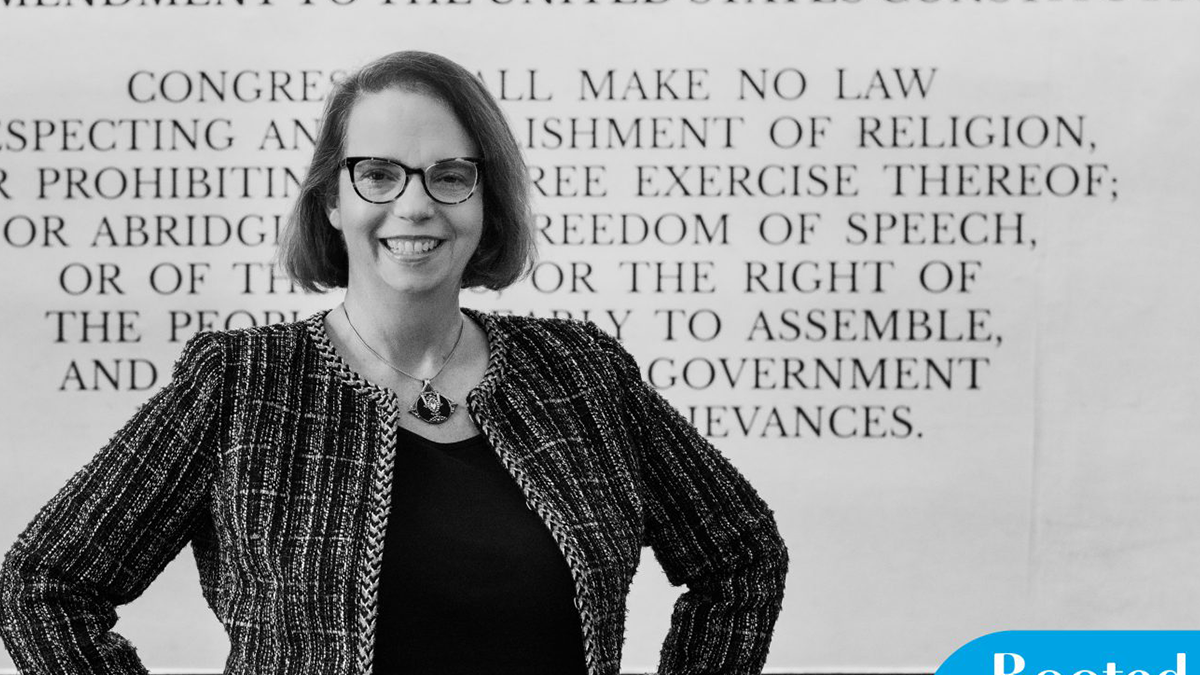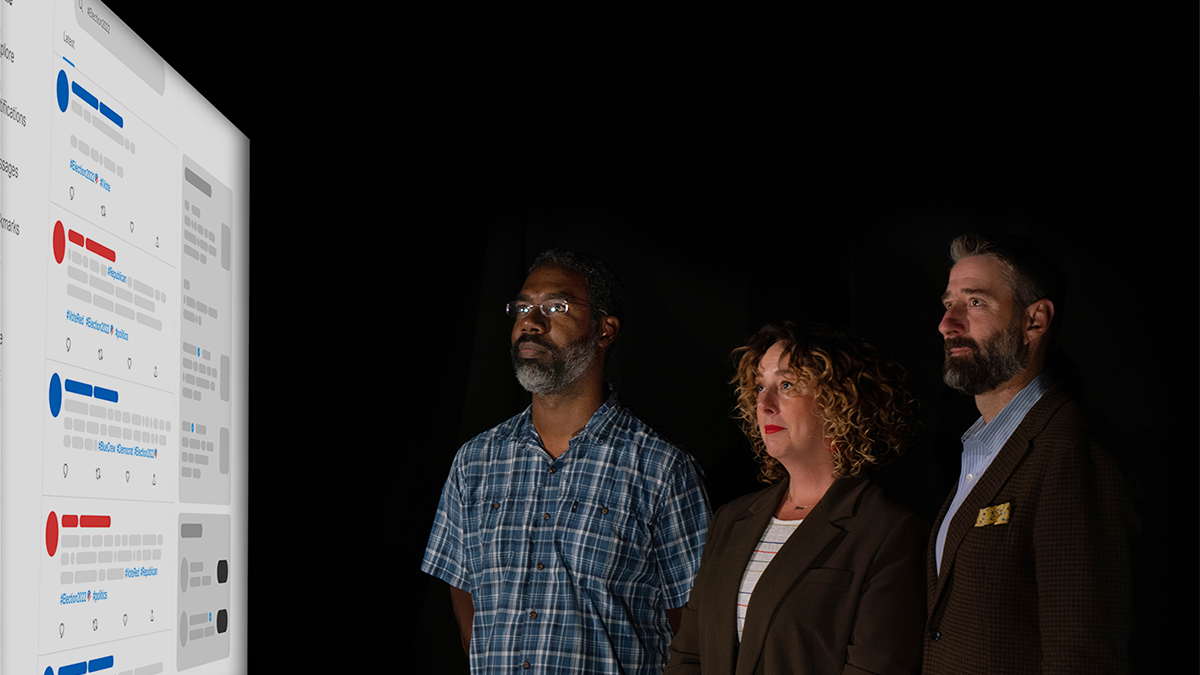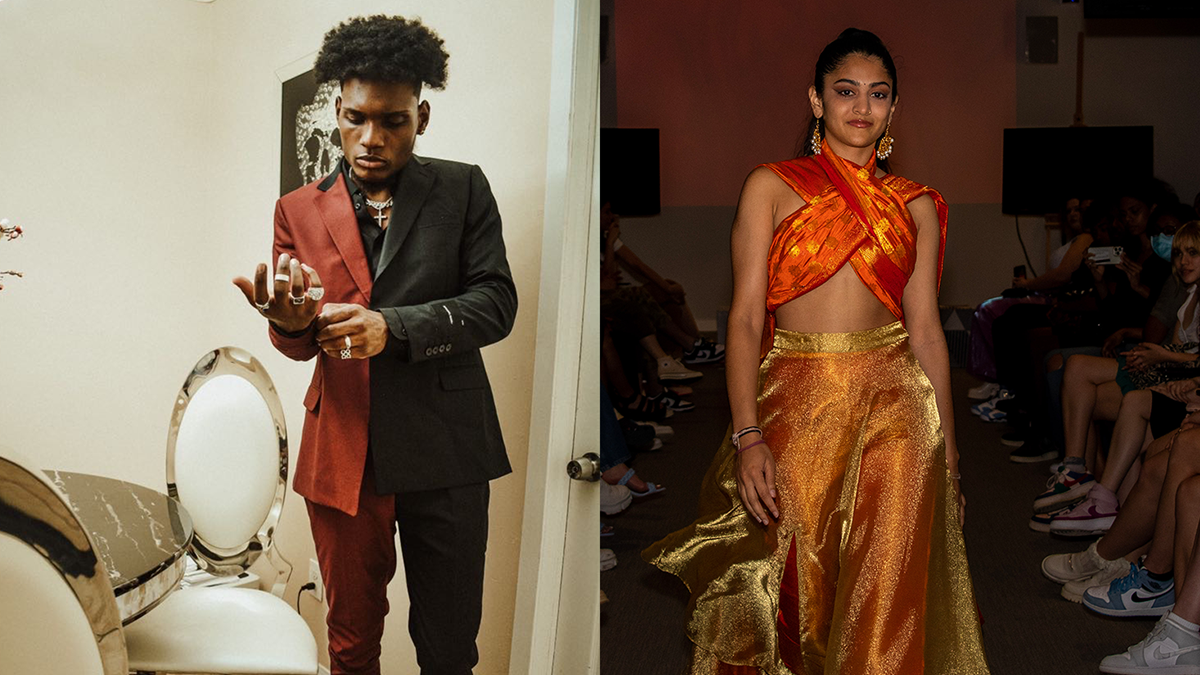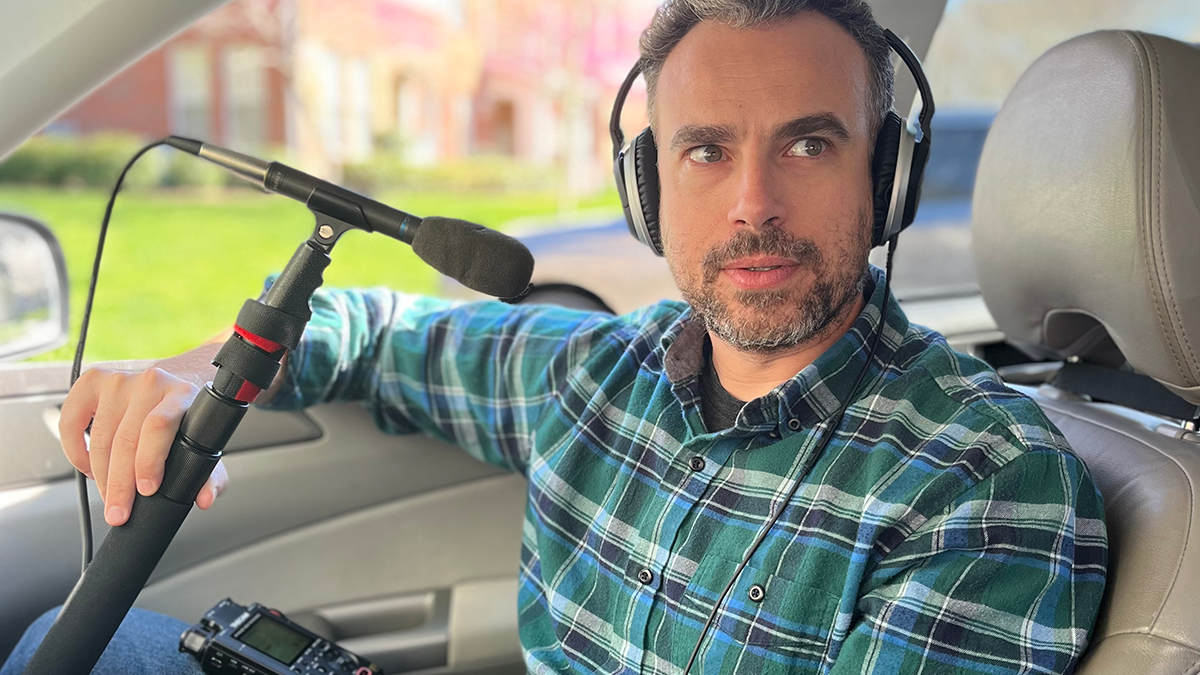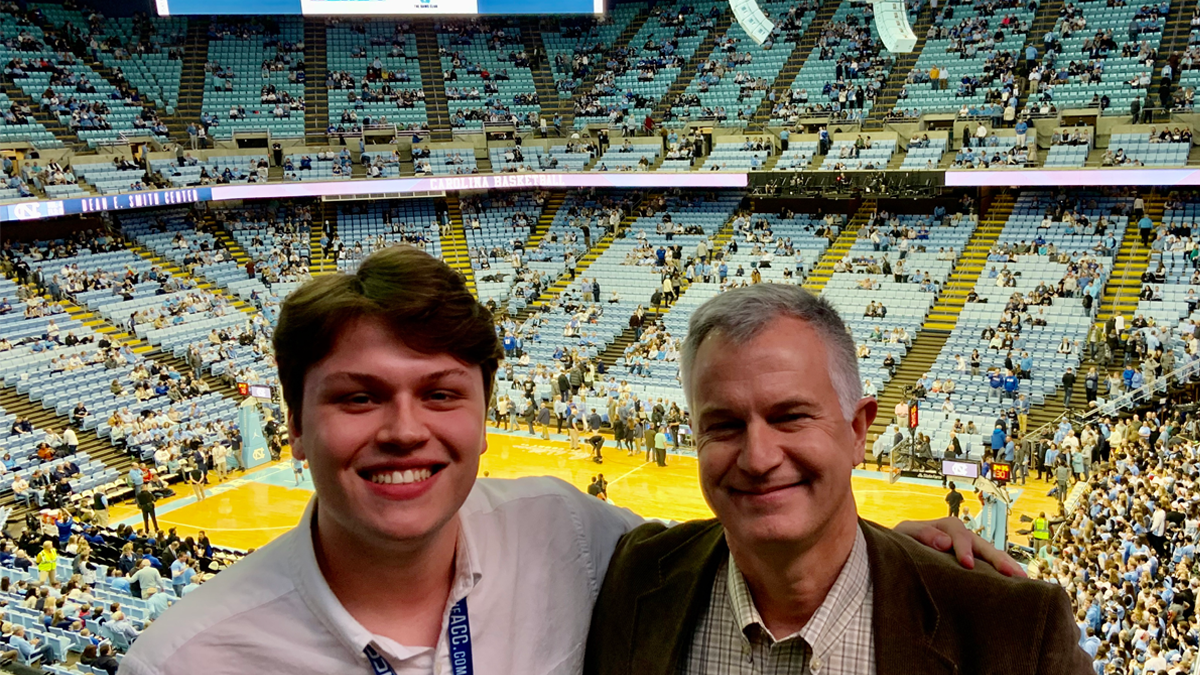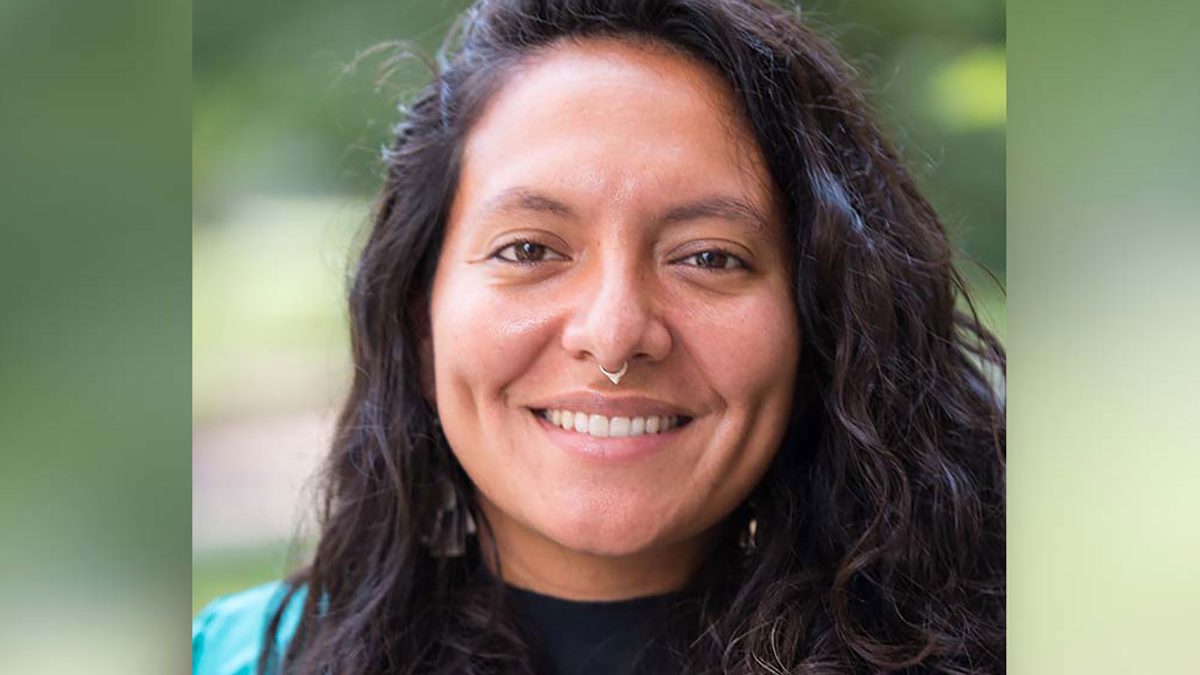Social Networks in Media
“The way we talk about media has been largely shaped by our social environment and networks.”
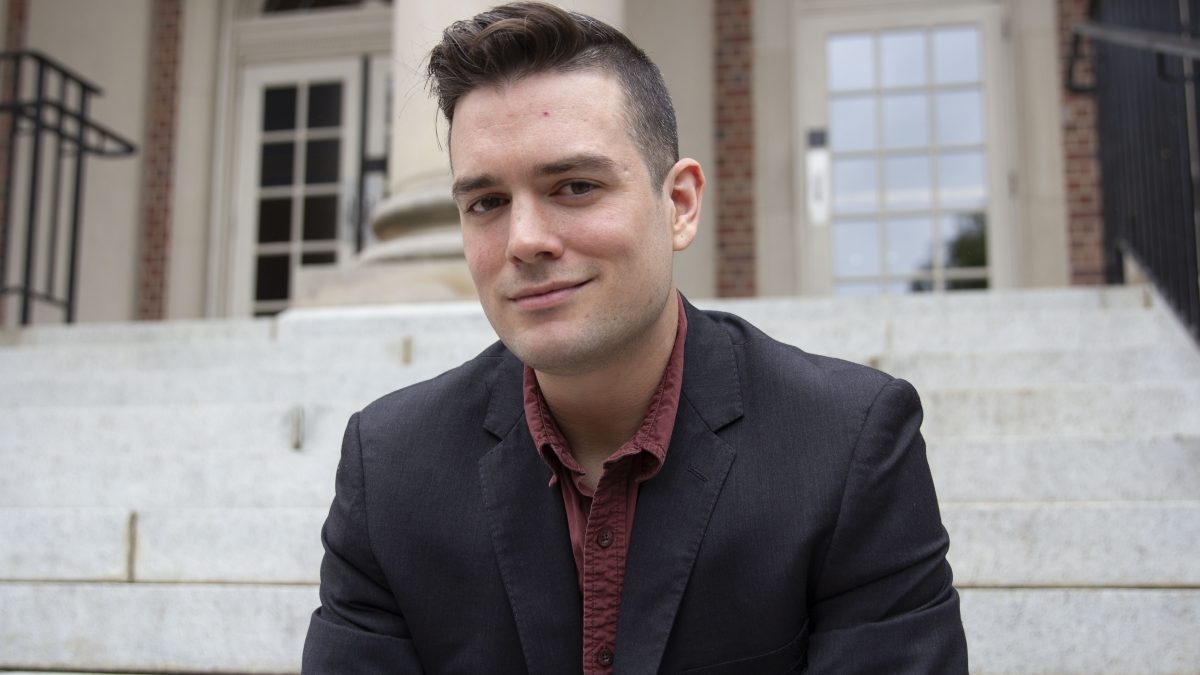
“The way we talk about media has been largely shaped by our social environment and networks.”
“When I attend journalism conferences around the country, everyone seems to have some sort of connection to Carolina,” said Josh Barker, Roy H. Park Doctoral Fellow at the UNC Hussman School of Journalism and Media.
Having learned from Carolina alumni as an undergraduate and graduate student, Barker was drawn to the Hussman School because of the significant breadth and depth of its alumni network.
“The major conventions are basically UNC homecoming,” laughed Barker.
During his time at Carolina thus far, Barker has also been impressed by the continuous support he feels from his professors.
“The faculty is supportive rather than restrictive. There are open door policies with everybody, so I feel like I can walk into any professor’s office and never be turned away.”
Assistant Professor Adam Saffer, in particular, has significantly shaped Barker’s experiences as a doctoral candidate. Saffer’s network methods class shifted Barker’s entire research focus.
“When I first took the network methods class, Saffer opened up this way of thinking of the effects that the media and friends/family have on people rather than it being an individual thing,” Barker said. “A major factor in the decisions that we make is our social environment.”
Barker decided to further pursue this concept by researching how our social environment affects our responsiveness to health campaigns. Saffer and Professor Seth Noar have played instrumental roles in aiding Barker in kick-starting this research.
Since beginning this project, Barker has received a 2019 National Institutes of Health (NIH) “seed” grant to use network methods to study how the structure and composition of a young adult’s social environment might be associated with attitudes about using e-cigarettes. The research proposal that precipitated Barker’s grant was based on a condensed version of his 165-page dissertation proposal on networks and health communications and behaviors.
“Basically, the way that we talk about media and the way that we talk about health campaigns has largely been shaped by psychology,” said Barker. “If we can figure out a way that people process information, we can see how people respond to persuasive messages or advertisements or public health campaigns and have a better sense of what certain media efforts are going to do.”
Barker’s study will look at a cross section of 2,000 American young adults and how personal networks, perceived message effectiveness and baseline outcome expectancies predict changes in behavioral intentions related to vaping. This study is aimed to understand how personal networks shape young adults’ e-cigarette outcome expectancies and perceptions of FDA anti-vaping messages. In doing so, Barker will analyze how the people you surround yourself with as a young adult — your social environment or your personal “networks” — influence your beliefs about addictive behaviors and how well you respond to anti-vaping campaigns.
“Since the FDA is rather late to the game, my thoughts were that the people who might be using e-cigarettes see them in real life more than they see them in an ad,” predicted Barker. “How do the people that you surround yourself with inform your baseline beliefs? How does that affect how you interact with e-cigarette messaging? This research will help us get a better sense of how effective these million dollar campaigns are going to be.”
The $20,000 NIH grant will significantly support Barker through various aspects of his research. Specifically, the majority of the grant will go toward recruiting subjects and providing a strong infrastructure for the study. The grant allows Barker to build his existing frame of work into substantial, influential research about the effects of media in our society.
